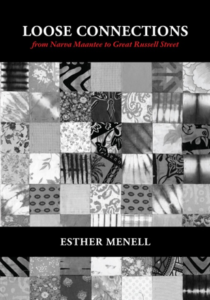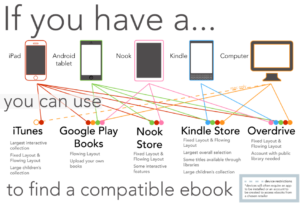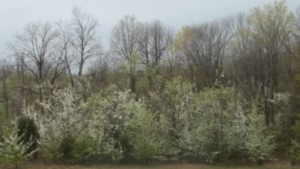It was while combing the internet for opinions of a particular translation that I came across the term Tree Book for the first time. Here was a reader who had greatly enjoyed one of the monuments of Russian literature, but regretted it was not yet available in electronic form. He had been obliged to read it as a Tree Book.
Well, it didn’t take too long, for I had just been immersed in an article about trees – the beautiful but monstrously invasive Bradford Pear – to work out what a Tree Book was, and I shuddered at the memory of the occasion when I had almost joined the electronic ranks myself.

It was about a year ago that I heard an agent had expressed interest in a manuscript that one of my authors had been trying to get published for a very long time. I was pleased for M, but not surprised when this came to nothing.
All was not lost, however, for the agent now offered to reissue five of M’s out-of-print titles, including my own favourite in which this irrepressible storyteller had given his fictional brothel his real-life publisher’s actual phone number . . . .
Good news but somewhat baffling, for it seemed that all re-publishing meant was posting the books on the agent’s website, alongside a dizzying number of other rescued titles. But was this really enough to attract new readers to these long-forgotten books, and wouldn’t many of this quirky writer’s original fan-base be, by now, either in their dotage or dead?
Still, what harm could come of such an operation? The books would be available again – they might even be re-jacketed (appearance is all) – and the author would get a cut of any money that they made.
The story would have ended there had I not then sent the agent a copy of my own memoir to prospect for potential additions to his list. But he mistook my book for a submission.

I could not have predicted what came next: first, a flattering note about how much he was enjoying it, then a phone call to establish whether it presented any problems of libel (which he would have known, if he had read it) and then, without further foreplay, a contract!
In spite of the breakneck speed, which should have served as a warning – in my day, publishers had been notoriously slow to commit themselves – my own novice publisher and I, who had never seen an e-book, were tempted to accept the offer. Electronic publishing was a mountain we still had to scale and here was someone who would take this operation off our hands.

But we did want to know a bit more before signing a contract and suggested a meeting, at the agent’s convenience, saying that although I was very interested, I wouldn’t want to let the rights go just yet. To which I had this reply by return:
I wish you had told me you weren’t actually looking to be published, so I wouldn’t have wasted all that time.
What has happened to good manners? And are there many publishers who don’t read their post and who publish books they haven’t read?
Maybe the day will come when these agent-cum-publishers will stop to taste before they propagate. They should take a leaf out of the book of scientists who are now trying to undo the work of their predecessors who had gloried in the beauty of the fast-growing Bradford Pear, which they had mistakenly thought to be sterile but which has now overwhelmed the suburban areas of those little American towns it was brought in to prettify, spreading to the surrounding countryside and strangling everything in its path.

The proliferation of e-books, we are told, has not stopped people buying and reading Tree Books which, like trees themselves (with a few exceptions) grow slowly to maturity. However, to see anyone reading a book which is not on a device is a rare sight. Which is why I was prompted to talk to the rough-looking youngster next to me on the bus the other day. I could see the running head of the book he was reading. Bitter Lemons. Durrell was writing about the village from which this young man’s family came. And yes, it was unusual for him to read a book of any sort, but he now intended to read more. And, having responded in friendly fashion to my interruption, he was soon buried again in the pages of his Tree Book.
E-books do have a place, of course. I wish they had existed in my back-packing days when I mistakenly thought Meredith’s The Egoist would make good holiday reading, and I will be glad of them when I no longer have the strength to hold a heavy book (Life and Fate defeated ninety-year-old Diana Athill for that reason) or can’t read without a magnifying glass. But they have become as invasive a species as that beautiful but deadly tree and only children, while they are still children, are resisting their spell.

They do have one advantage though, if you can call it that, of being very easy to get rid of. See Self-destructing e-books reveal a dark digital truth in a recent Financial Times, which describes how every e-book copy of Orwell’s Nineteen Eighty-Four vanished without a word of explanation.